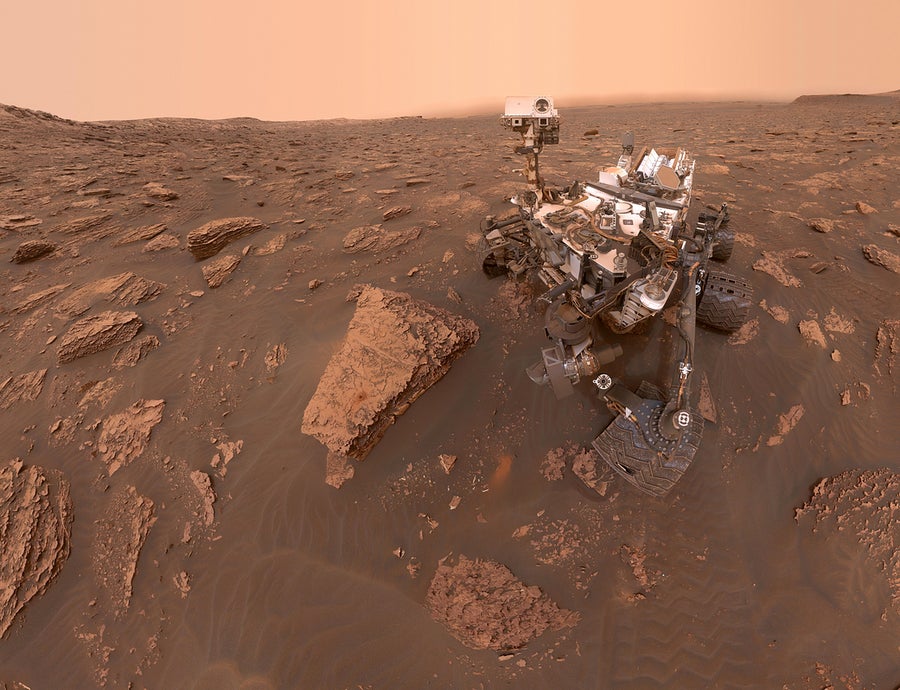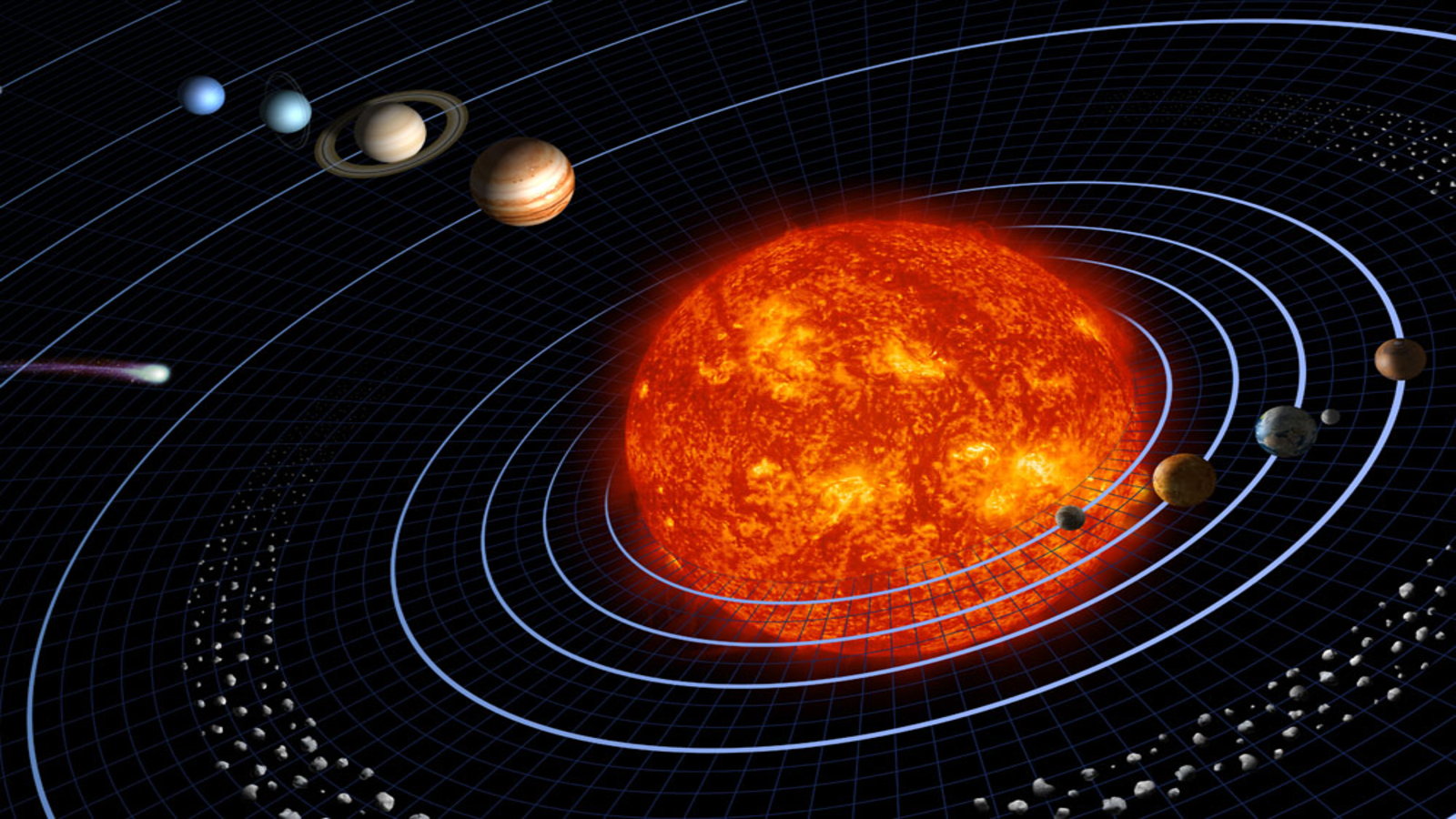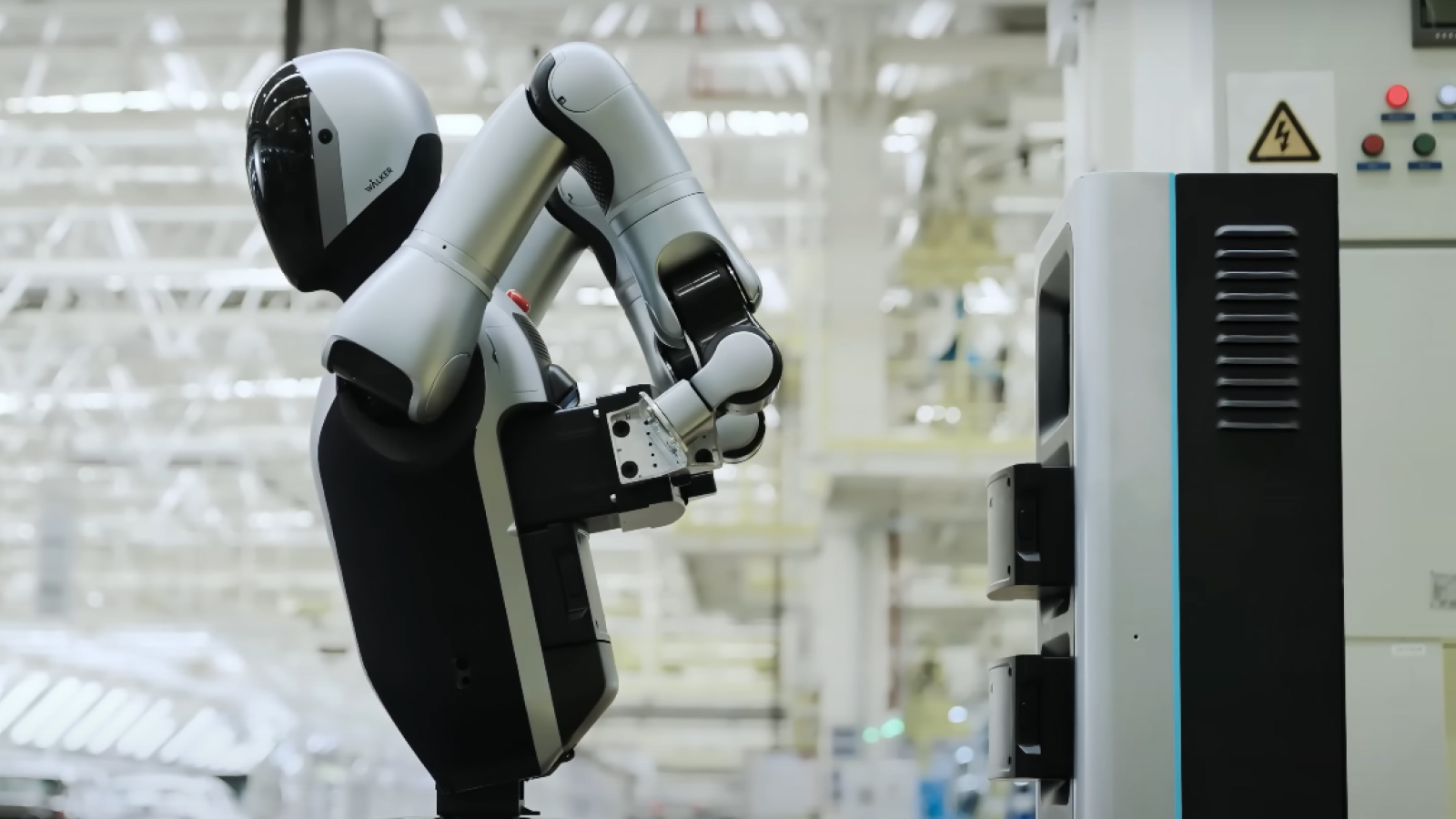Slashing NASA’s Programs Will Squander America’s Place in Space
Slashing NASA’s Programs Will Squander America’s Place in Space
The Trump administration’s plans to cut NASA’s science missions will destroy the U.S. space legacy
Apollo 12 astronaut Alan Bean during the second moonwalk EVA.
NASA/Recall Pictures/Alamy Stock Photo
For more than half a century planetary exploration and space science have been a hallmark of American achievement and excellence. From Mercury to Pluto and beyond, we have gained enormous understanding about planetary origins and evolution. We have learned about the atmospheric, surface and interior dynamics of other worlds. All those discoveries have carried implications for what’s happening here on Earth. In classrooms around the world, exploring new worlds and probing the mysteries of the universe is an emblem of America.
But that may now end; the Trump administration is poised to take the chainsaw to space science, just as it has to almost everything else in the U.S. science portfolio. Trump officials are planning huge, destructive cuts for space science, according to news reports, likely killing all new mission plans for this decade, including the long-sought, all-important Mars Sample Return mission. This flight was meant to return now-waiting samples from the red planet.
China is already leading the way to the moon and Mars with robotic vehiclelike rovers and sample returns and is also likely to do so with human missions. The U.S. human space program, meanwhile, is bogged down with a stumbling Artemis program, built with a convoluted architecture marked so far by failures and delays in nearly every major component. The latest is the repeated failure of SpaceX’s Starship, which twice now has exploded in flight. Reminiscent of the 1980s, when we paused planetary exploration after the success of Viking and launch of Voyager 1 and 2, the U.S. has iced new Mars missions, with plans to cancel Mars Sample Return, and redirected our once great lunar capability to small experimental landers built by inexperienced new companies. Beyond specific missions, the loss of space science research capability will be a generational calamity.
On supporting science journalism
If you’re enjoying this article, consider supporting our award-winning journalism by subscribing. By purchasing a subscription you are helping to ensure the future of impactful stories about the discoveries and ideas shaping our world today.
So what? Does it matter if the U.S. is No. 2 on other worlds? Space is a pretty distant arena—even more distant if it is the moon, Mars and beyond you are thinking of. Compared with the “America First” emphasis on AI chips, rare earth metals, tariffs and trade wars, promoting Teslas and cutting foreign aid, space is a minor political and economic player. But we are becoming No. 2 in such areas of focus too (see China’s advances in DeepSeek AI, BYD electric cars and developing hydropower in Africa). Our failures on Earth are not unrelated to our narrow and shortsighted vision for the moon and Mars, and the broader dismissal of science.
Focusing inward is what China’s Ming dynasty did in the 15th century and the Portuguese and Dutch did in the 18th. Our step back from exploration of new worlds is one deep into mediocrity or even obscurity. It’s tied together—the Apollo program was not about a race to the moon; it was about a race between geopolitical powers to prove their economic and technological superiority to the world. So too now. Africans will feel the U.S. retreat as we withdraw humanitarian and infrastructure aid. They will also feel the U.S. retreat from science and exploration just as China goes forward with theirs.
I don’t think it matters to Africans if it is Chinese or Americans there, engaged and helping them. I also don’t think it matters to the moon or Mars whether it is China or the U.S. building things there. But if we accept mediocrity and turn our focus inward, it will matter to us, especially to our children. The isolationist or island mentality expresses to our children and to the world that we have given up on ambition and growth and understanding the universe, that we will be satisfied with being less than we can be.

Curiosity rover created this self-portrait at Gale Crater on Sol 2082 (June 15, 2018) using the Mars Hand Lens Imager, or MAHLI.
The planned decimation of American space science, coupled with the total dysfunction in our human space program, squanders the admirable U.S. record and accomplishments. If these budget cuts go through, we will leave collected samples on Mars and forego future exploration. What little money will remain will be given to Boeing’s troubled Space Launch System human space flight vehicle and SpaceX’s exploding Starship—a vehicle designed for Elon Musk’s Mars fantasy, rather than for the needs of the U.S. space program.
There is no doubt we could do more with less. NASA is wasting money racing again to put footprints on the moon, this time to lose. Instead, we could play to our strengths. Imagine a telerobotic lunar base with broad societal and international participation, instead of the two-people-per-year plan to put boots on the moon we now have. We could “commercialize” the moon not with fanciful mining ideas, but with private and public partners operating vehicles, conducting science observations and even playing sports and games. Similarly, we can lead the world into the solar system with virtual exploration opportunities for all. And we can bring home those samples from Mars—possibly with the discovery of extraterrestrial life. This kind of American creativity would cost far less than our current program—but it will not have a chance in a budget-slashing environment where we throw out the babies and bury our heads in the bathwater.
This can only be enabled by government. Private companies will not conduct science and astronomy on the moon (nor send rovers or bring back samples from Mars). Nor will they fly the successors to Hubble and Webb such as the Nancy Grace Roman telescope, which the administration also proposes to cancel.
Space exploration is meant to create a positive future. The legacy of Apollo, and of our robot explorers in the solar system is a real and worthy America first legacy, one that proclaims American leadership based on a peaceful and global aspiration: for the benefit of all humankind. That legacy should not be squandered.
This is an opinion and analysis article, and the views expressed by the author or authors are not necessarily those of Scientific American.
Source link






